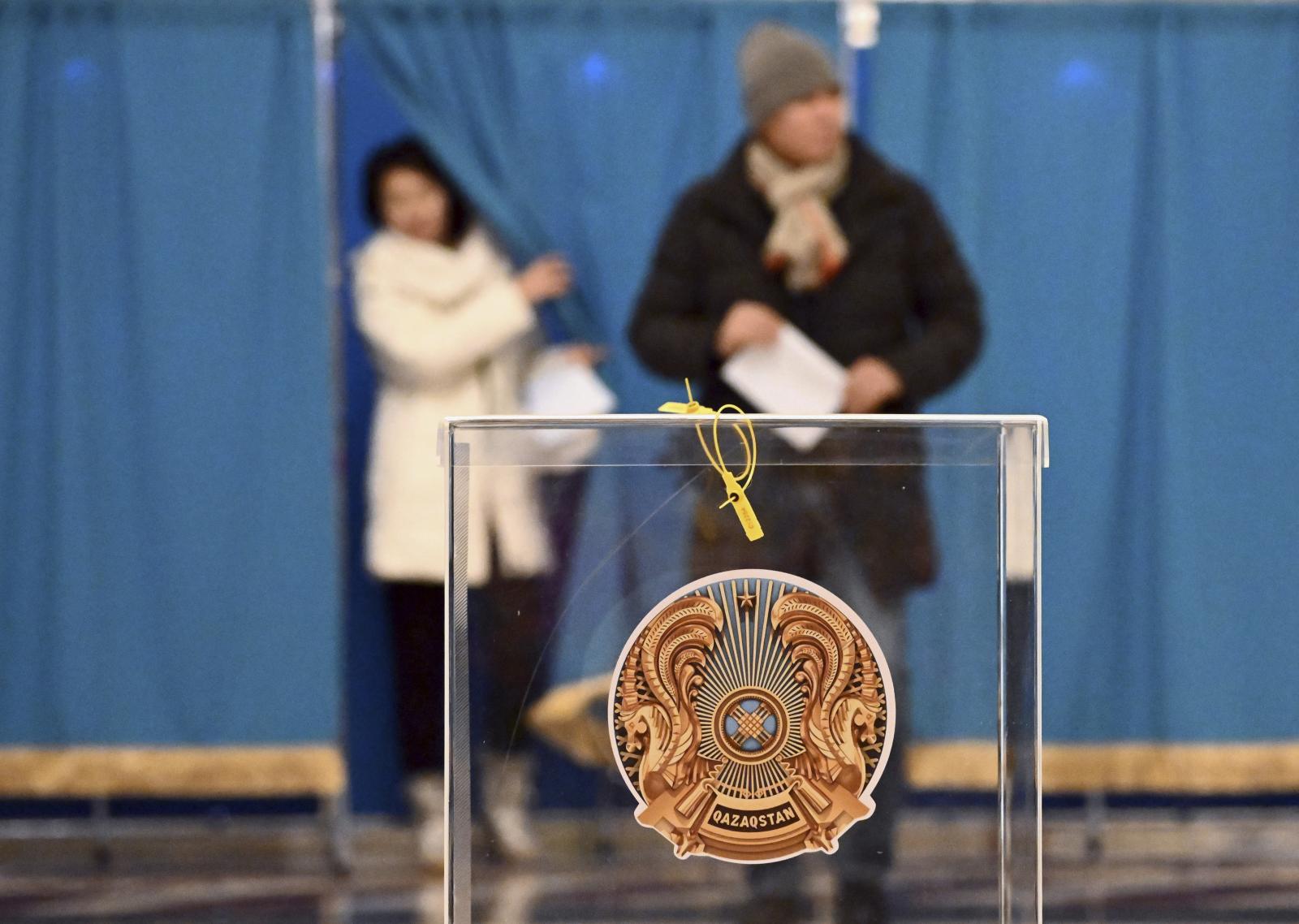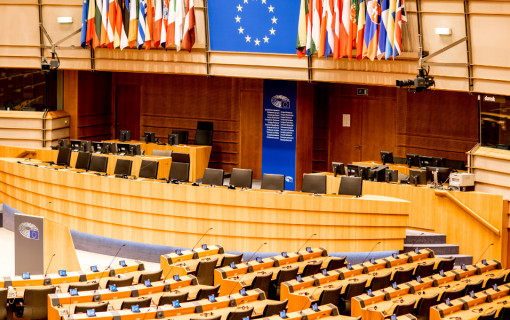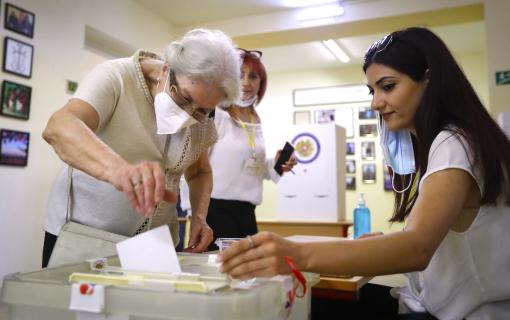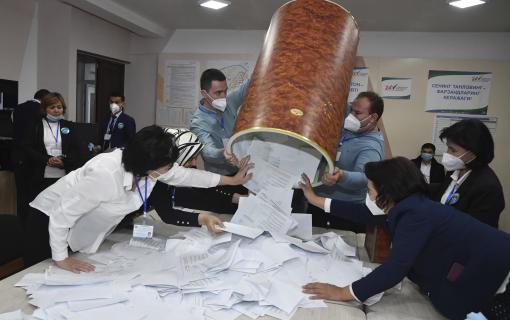Elections in Kazakhstan: 2023 Parliamentary and Local Elections
Snap elections for the Kazakhstan lower house of the federal Parliament (Majilis) and local councils (maslikhats) will be held March 19, 2023. A total of 3,749 deputies of maslikhats will be elected—2,130 in regional councils and 617 in city councils.
The 2023 snap legislative elections will test President Toqaev’s structural and political reforms in the aftermath of last year’s referendum and presidential election and the extent to which they will facilitate the creation of a “New Kazakhstan” following the three-decade rule of former President Nursultan Nazarbayev.
Ahead of this important electoral process, the International Foundation for Electoral Systems (IFES) provides Frequently Asked Questions (FAQs) on Elections in Kazakhstan: 2023 Parliamentary and Local Elections.
Learn more about IFES's programs in Kazakhstan and follow @IFES_Europe and @IFES1987 on Twitter.
Additionally, visit IFES's Election Guide for the most comprehensive and timely verified election information available online.
Frequently Asked Questions (FAQs)
Snap elections for the Kazakhstan lower house of the federal Parliament (Majilis) and local councils (maslikhats) will be held March 19, 2023 (the most recent Senate election took place on January 14, 2023). Polls will be open from 7 a.m. to 8 p.m. local time.
President Kassym-Jomart Toqaev announced in a September 2022 address that he would call for snap legislative elections in 2023. On January 19, Toqaev formally dismissed the lower house of Parliament (Majilis) and set March 19 as Election Day. This year's Majilis elections will be the first held since the mass protests that rocked Kazakhstan throughout January 2022 and the reforms championed by Toqaev and approved by voters in a June 5, 2022, national referendum. Most significantly, the reforms curtailed former President Nursultan Nazarbayev’s continued influence over Kazakh politics, restricted President Toqaev’s ability to override the decisions of lower executive offices, and shifted legislative power from the upper house of Parliament—the Senate—to the Majilis. The reforms also altered the electoral structure of the Majilis, with roughly one-third of its members being elected from single-member districts rather than from party lists. These changes were met with guarded optimism from the international community, which cautiously recognized the reforms as a positive step. However, analysts and journalists within and outside Kazakhstan look towards this year’s elections with some skepticism that the reforms will result in meaningful progress toward a more open, democratic Kazakhstan.
The 2023 snap legislative elections will test President Toqaev’s structural and political reforms in the aftermath of last year’s referendum and presidential election, and the extent to which they will facilitate the creation of a “New Kazakhstan” following the three-decade rule of former President Nursultan Nazarbayev. This year’s Majilis and local council (maslikhat) elections will be an important indicator of Kazakhstan’s political trajectory over the next several years in terms of political pluralism and public engagement in the decision-making process.
A total of 3,749 deputies of local councils (maslikhats) will be elected—2,130 in regional councils and 617 in city councils. In the lower house of Parliament (Majilis), 98 deputies will be elected under the mixed electoral system that was introduced following the 2022 constitutional referendum. Sixty-nine of the 98 deputies will be elected from party lists and 29 as candidates of single-member constituencies. A total of 609 candidates are running in single-member constituencies, with 84 nominated by parties and public associations and 525 self-nominated candidates.
As of February 24, 281 candidates from seven registered political parties were running for seats in the Majilis on party lists. Seven parties submitted candidate lists for the Majilis elections; the candidates, their parties, and the number of seats each won in the 2021 parliamentary elections are shown below.
- Amanat, formerly Nur Otan, Kazakhstan’s ruling party (76 seats)
- Aq Jol Democratic Party (12 seats)
- People’s Party of Kazakhstan (10 seats)
- People’s Democratic Patriotic Party, or Auyl (0 seats)
- All-National Social Democratic Party (boycotted the 2021 elections)
- Respublica (a new party that did not participate in the 2021 elections)
- Green Party of Kazakhstan, or Baytaq (a new party that did not participate in the 2021 elections)
Of the parties running candidates in the upcoming elections, only the Nationwide Social Democratic Party has declared opposition to the ruling government.
Kazakhstan is a presidential republic, with the president elected by popular vote for a five-year term. The president nominates the prime minister, who heads the government and is the second-highest-ranking official in the country. Parliament must confirm the prime minister. Parliament consists of the lower house (Majilis) and the Senate. The 98 members of the Majilis are elected to five-year terms; the last election took place in 2021. In comparison, the 50 members of the Senate are elected to six-year terms via secret ballot by delegates from the 17 provinces and three national cities. The most recent Senate election took place January 14, 2023.
This will be Kazakhstan’s first parliamentary election following the introduction of a mixed-party list and single-member electoral system for the lower house of Parliament. Under this system, 69 of the 98 members of the Majilis will be elected proportionally based on party lists, with the remaining 29 elected directly from single-member constituencies.
Kazakhstan’s electoral system is organized and conducted in accordance with the Constitution of the Republic of Kazakhstan and the 1995 Constitutional Law on Elections, often referred to as the Election Law. The two laws provide the overall framework for elections. A number of other laws—including the Law on Communications, the Law on Peaceful Assemblies, and the Law on Political Parties—regulate specific aspects of Kazakhstani elections. The country’s Central Election Commission is responsible for implementing those laws and for issuing regulations to supplement them as needed.
The Election Law—Kazakhstan’s most fundamental legal framework for elections—has been amended every year since 2017. Recent amendments include the introduction of quotas in candidate party lists for marginalized communities and measures to make polling stations more accessible to voters with disabilities.
To run for a seat in the lower house of Parliament (Majilis), a candidate must be a citizen at least 25 years of age who has lived in Kazakhstan for 10 years prior to Election Day. Candidates may qualify in one of three ways:
- A party may nominate them to run either on a party list or for a single-seat constituency;
- A qualifying public association may nominate them to run for a single-seat constituency; or
- They may self-nominate to run for a single-seat constituency.
By comparison, a candidate running for a local council (maslikhat) must be at least 20 years old, with no time-of-residency requirement. Candidates for maslikhat seats may self-nominate or be nominated by a political party.
Election campaigning began formally began at 6 p.m. on February 18 and will continue until midnight on the night before March 18. The day before the election is a day of silence during which no campaigning will take place.
A quota specifies that 30 percent of candidates running on party lists for the lower house of Parliament (Majilis) collectively must be women, youth (under age 29), and persons with disabilities. With the registration of candidates having closed on February 18, representation of those three groups on party lists stands at 38 percent; however, women comprise only 28.5 percent of party list candidates. Notably, just 20 percent of registered candidates for single-member constituencies are women, and those seats have no gender quota.
Kazakhstan’s campaign finance regulations are enshrined mainly in the 1995 Election Law and the Law on Political Parties. As described in those laws, parties may fund their campaign activities by private donations of up to KZT 425 million (approximately $946,057) or funds allocated by a nominating public association of up to KZT 212.5 million (approximately $474,122). The Central Election Commission (CEC) opens dedicated bank accounts for party campaign income and expenditures upon the registration of party lists. The CEC publishes campaign incomes and itemized expenditures as required by August 2015 amendments to the CEC charter, although it does not disclose the identities of donors or the amounts each gives. There is no cap on individual donations to parties, but any donations that exceed the private or public association limits must be returned to the donors.
The 1995 Election Law permits “voluntary donations by citizens and organizations of the Republic.” State organizations, charities, religious groups, and legal entities with foreign stock in their charter capital are expressly forbidden from making contributions. Anonymous donations, or those originating from foreign sources, are also prohibited.
Kazakhstan’s elections are managed under a three-tiered system comprising an election management body, with 234 territorial election commissions and 10,012 precinct election commissions operating under the authority of the Central Election Commission (CEC). The seven-member CEC controls the implementation of electoral legislation, organizes parliamentary and presidential elections, and oversees lower election commissions. The president appoints three members, including the chair, and the Senate and lower house of Parliament (Majilis) each appoint two. The precinct and territorial commissions assist in implementing electoral legislation at their respective levels of government; the precinct commissions, in particular, play key roles in notifying voters of the time and place of voting, administering the vote at polling stations, and conducting vote counts.
Other bodies involved in managing the electoral process include district courts, which may consider election-related complaints and disputes, and the seven-member Constitutional Council, appointed by the president and the Parliament, which conducts final reviews of appeals of election results.
According to Kazakhstan’s Election Law, citizens over the age of 18 are automatically registered to vote. However, any citizen serving a prison sentence for any crime or whom a court has found incompetent due to a disability cannot vote. Registration is based on the state population register maintained by the Ministry of the Interior, and city governments compile voter lists based on place of residence.
Voters who wish to vote away from their place of residence may request an absentee voting certificate at their original polling station up to one day before the election.
As of February 26, 2023, Kazakhstan had 12,032,550 registered voters. Of those, approximately 12,841 live outside of the country and have applied to vote abroad. Citizens will be able to access voter lists no later than March 4 (15 days before Election Day), either through the website or call center of their city hall, to verify their registration status.
A quota requires that 30 percent of candidates running on a party’s list must be women, youth (under age 29), or people with disabilities. However, the proportion of women running on party lists falls well short of 30 percent, and women currently hold only 28 of the 98 seats in the lower house of Parliament (Majilis). Because the Central Election Commission (CEC) does not publish the ages of candidates, neither citizens nor international observers can verify compliance with the youth quotas.
The government and the CEC have adopted several measures to enhance the participation of persons with disabilities in the upcoming snap elections. These include the use of braille and sign language interpreters, the provision of taxi services for disabled voters, and the active involvement of representatives of public associations that advocate for persons with disabilities in ensuring the accessibility of the electoral infrastructure. However, citizens whom a court has declared incapacitated due to intellectual or psychosocial disability continue to be prohibited from voting.
Yes. In accordance with Kazakhstan election law, polling stations will be open at representative offices of the Republic of Kazakhstan in foreign states, and all citizens either residing abroad or traveling for an extended period may present a valid passport and apply to vote at an overseas polling station.
International observers may apply for accreditation by the Central Election Commission (CEC). The CEC, with the Ministry of Foreign Affairs, can invite international and interparliamentary organizations, as well as foreign central election bodies, to observe elections. The CEC sets the term of and start date for accreditation prior to each election. By law, the accreditation of observers must conclude by 6 p.m. local time five days prior to Election Day. As of March 14, 2023, 131 observers from 41 foreign states and 662 observers from 12 international organizations were accredited; 211 domestic organizations have also been accredited.
Under the 1995 Election Law, political parties, public associations, and designated nonprofit organizations are also permitted to act as observers; they may be present at CEC meetings, observe voting, and appeal decisions made by any of the tiered election commissions.
Precinct election commissioners are responsible for counting votes and tabulating the results at polling stations. The counting of votes begins at 8 p.m. local time on Election Day, and the 1995 Election Law specifies that counting shall not exceed 12 hours, finishing no later than 8 a.m. on March 20.
Various articles of the 1995 Election Law, the Law on Administrative Procedures, and the Law on Procedures for Consideration of Petitions address the adjudication of election disputes and complaints. Those laws set out timetables for the submission and consideration of complaints. Any citizen may file a complaint with either the courts or the election commissions within 10 days of the subject incident; the commission or court has five days to consider the complaint, but it must immediately consider complaints received on or within five days before Election Day. Complaints are forwarded to the appropriate precinct or territorial commission, and they may then be appealed to the Central Election Commission (CEC), specialized administrative courts, and the Supreme Court of Kazakhstan. The Supreme Court’s decision on any electoral complaint or appeal is final and cannot be appealed further.
Only the president, the prime minister, the speaker of the lower house of Parliament (Majilis) or the Senate, or one-fifth of all members of Parliament may appeal the final results of the election as announced by the CEC. The appeal must be made within 10 days of the announcement of the results, and the Constitutional Council considers all such appeals.
Since 1987, the International Foundation for Electoral Systems (IFES) has worked in over 145 countries to advance good governance and democratic rights. IFES conducted programming in Kazakhstan from 1994 through 2007, providing technical assistance to the Central Election Commission and lower-level election management bodies, supporting domestic civil society organizations, conducting national surveys of democracy indicators, and providing nationwide civic education opportunities for secondary school students.
These FAQs reflect decisions made by the Central Election Commission as of March 15, 2023, to the best of our knowledge. This document does not represent any International Foundation for Electoral Systems policy or technical recommendations.










